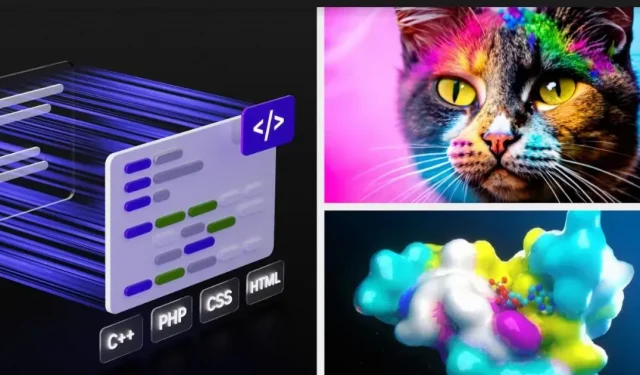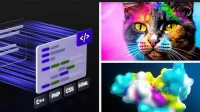NVIDIA is making big claims about its cloud service dedicated to AI. AI funds will serve many purposes.
Everyone talks only about artificial intelligence. It’s on everyone’s lips and the general public can only feel the power of these technologies. This is pushing the tech giants to dive into it completely. For example, NVIDIA is introducing AI Foundations, a cloud-based service that should allow companies to quickly and easily develop their models “to design, refine, and use custom language and generative AI models that are trained on their own data and built for very specific tasks.””.
NVIDIA Makes Big Claims About Cloud Service Dedicated to AI
These models include NeMo, NVIDIA’s text-to-image engine, a competitor to DALL-E 2, and BioNeMo, a drug and molecular research-oriented version and derivative of NeMo. There is also Picasso, an artificial intelligence for creating images, videos, and “3D applications… for productivity in creativity, design, and digital modeling.”NeMo and BioNemo are available in early access, Picasso is in closed beta. All three run on the NVIDIA DGX cloud platform and will have access to a dedicated online portal. These models can be trained using between 8 and 530 billion parameters, more than three times the 185 billion parameters of GPT-3.5.
Imagine StableDiffusion, but trained on Getty Images, courtesy of Getty. NVIDIA announced such a system, built on the NeMo cloud service: a series of hand-picked text-to-image and text-to-video models “trained on content from Getty Images.””Getty Images will pay royalties to artists on all income generated from these models.”BioNeMo uses the same methods as NeMo to discover molecules and drugs, “allowing researchers to enhance their generative AI applications on their own data and run AI models directly in the browser or through this new service’s API to easily integrate into existing Applications.”
AI funds will serve many purposes
Six models will be available at launch, including DeepMind AlphaFold2, Meta AI ESM2 and ESMFold ProGPT-2 predictive models, DiffDock and MoFlow. According to these companies, the inclusion of AI-based predictive models is helping to reduce the learning curve for molecular analysis and optimization from three months to four weeks.
NVIDIA also announced a similar partnership with Shutterstock. The site will use Picasso to create 3D objects with simple text input as part of the new Creative Flow feature. It should be available on Turbosquid.com and its upcoming Omniverse platform.
NVIDIA is also partnering with Adobe on the Content Authenticity Initiative, which aims to increase transparency and accountability in the learning process for generative AI. Suggestions include the creation of a list of elements that “do not train”, such as robot.txt, but for images and multi-modal content, as well as tags that would clarify whether the content was generated by AI and which one. The two companies also announced that many of Picasso’s features will be integrated directly into Adobe’s software suite, including Photoshop, Premier Pro and After Effects.


